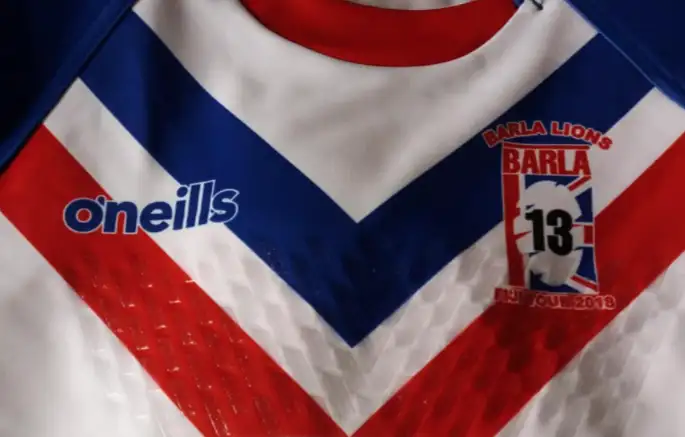50 years on: The story of amateur clubs breaking away from the RFL

It’s 50 years since amateur clubs broke away from the RFL to form the British Amateur Rugby League Association (BARLA), with several events planned to mark the milestone.
On March 4 1973 all District Leagues were invited to a meeting at Greenside Working Mens Club, Huddersfield as it was felt the governing body the RFL were not doing enough for the amateur game.
The drivers of the meeting were Tom Keaveney MBE and Jack Clayton who held positions within the Huddersfield District League at that time, and at the meeting those present voted to break away from the RFL.
The following month the RFL at its Council Meeting voted 29–1 against recognising BARLA, with only Tom Mitchell (who later became BARLA’s first Patron) of Workington Town, voting in favour of BARLA.
Within 12 months following a change of RFL Secretary to the late David Oxley, this changed to a unanimous vote of approval and recognition of BARLA for it to run the amateur game.
Alan Parker Treasurer of Hull & District Youth League and Lol Rawson the Chair of the Open Age Hull & District League are the only individuals who are still alive and attended that meeting.
Sue Taylor BARLA Chair and Vice President of the RFL, said: “I have been involved in amateur rugby for the majority of my life and knew Tom Keaveney and his wife Moira. I am honoured to have been chair of BARLA for the last ten years in which time I have built bridges and solid foundations through trust and honour in gaining respect and working with the governing body the RFL.
“BARLA have already premptied its anniversary with an undisclosed five figure donation for headcams for match officials to wear during amateur games.
“We are launching our 50th Anniversary logo and we have other plans to come to celebrate BARLA’s 50th Anniversary, these will be announced in due course which will be for the good and benefit of the game.”
How the breakaway came about
The minutes of the meeting provide a fascinating read some 50 years on.
Chairman Jack Clayton stated that: “the idea was to form a British Amateur Rugby League Council totally automonous from the Rugby (Football) League.”

He went on to say that the last time the amateurs had any kind of say in the affairs of the amateur game was back in 1959, when the then Yorkshire Commission and other Commissions had representatives from all areas, the set up of that time was, however, disbanded by the (RFL) when the Yorkshire Commission would not agree with a proposal put forward by the (RFL) at Leeds.
Figures from the various district leagues gave feedback and raised concerns, with one assuring that “we were doing things in the proper manner, he had been informed by our solicitor that it was perfectly legal.”
There were some fears over being excluded from the Challenge Cup qualifying rounds by breaking away, and the risk of losing grants made by local professional clubs.

The Halifax representative stated that his clubs were afraid if the proposal it was carried it would affect the grant that they receive from their senior club. It was pointed out to him, that such arrangements were local, and it was in the interests of senior clubs to make such grants.
The Leeds representative said that it was the amateur game that was growing and the professional game appeared to be stood still. He went on that it is a well known fact that rugby league can certainly not do without the amateurs, as most professional teams had a large percentage of their players from the amateur game.
The representative from Hull Works stated that “we were in a very momentous stage of amateur rugby and the voice of the amateurs should be heard.”
Each district league pledged £5 to BARLA to cover immediate expenses.

There was a total of 42 representatives in attendance at the meeting, from Bradford, Castleford, Doncaster, Halifax, Huddersfield, Hull Works, Leeds, Leigh, Manchester, Oldham, St Helens, Wakefield, Warrington, Widnes, York and the University game. Apologies were received from Barrow, Cumberland, Rochdale, the Southern League and Wigan, all of whom supported the proposal.
The final outcome was: “A unanimous decision of District Leagues present decided to formalise the British Amateur Rugby League Association, whose objects are the promotion of Amateur Rugby League on a national level. The needs of the amateur game are different from those of the professional body, and it is desirable and essential that we control our own affairs.”

Three decades of separation followed, before the RFL reunified with BARLA under the stewardship of Richard Lewis in 2004 as a result of pressure from Sport England over participation funding.
With off-field meetings dominating the professional game in recent years, it’s fascinating insight to how the game was administered five decades ago.
READ NEXT: Trust the process: Only those on the inside can judge on category grading